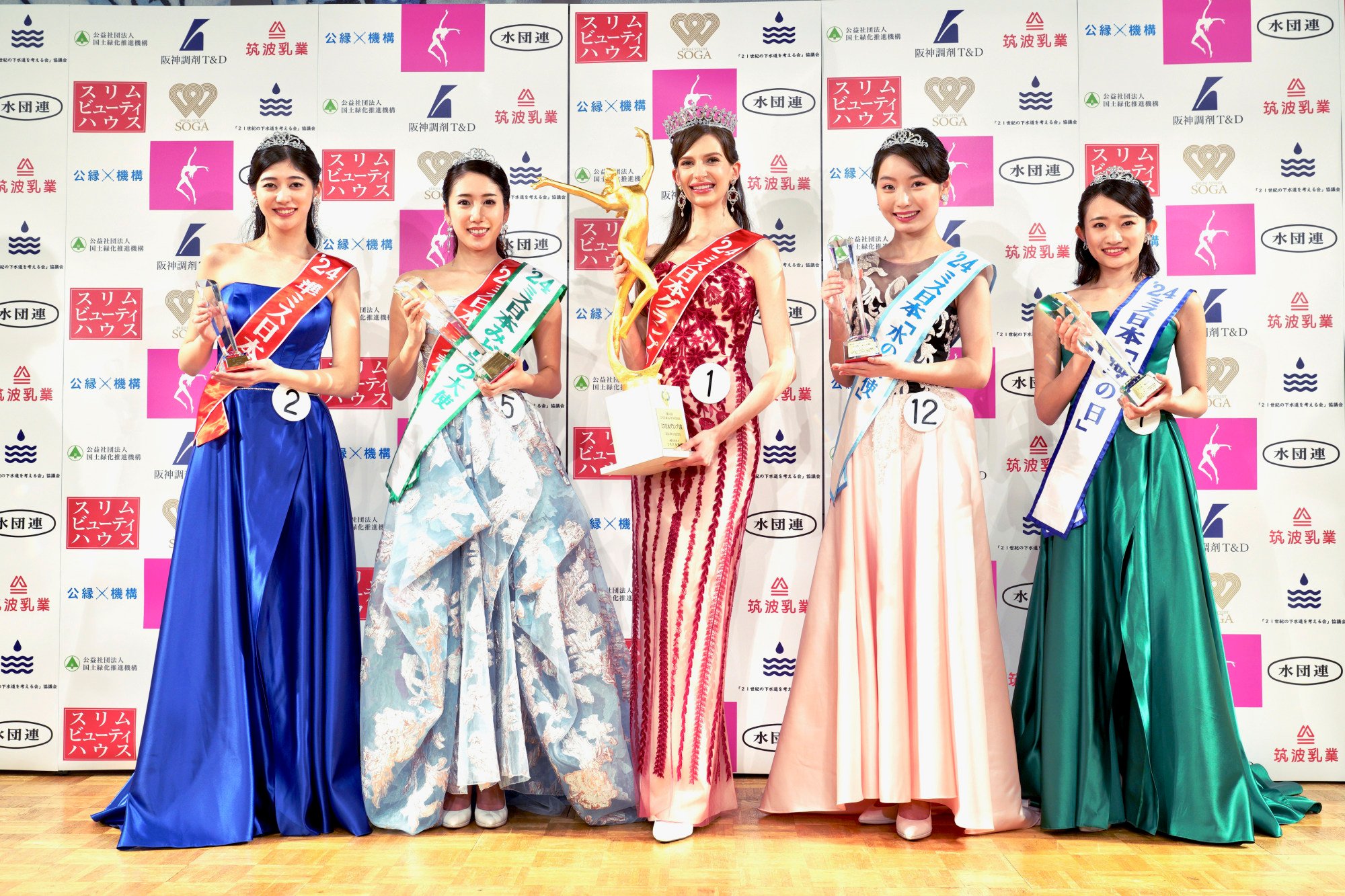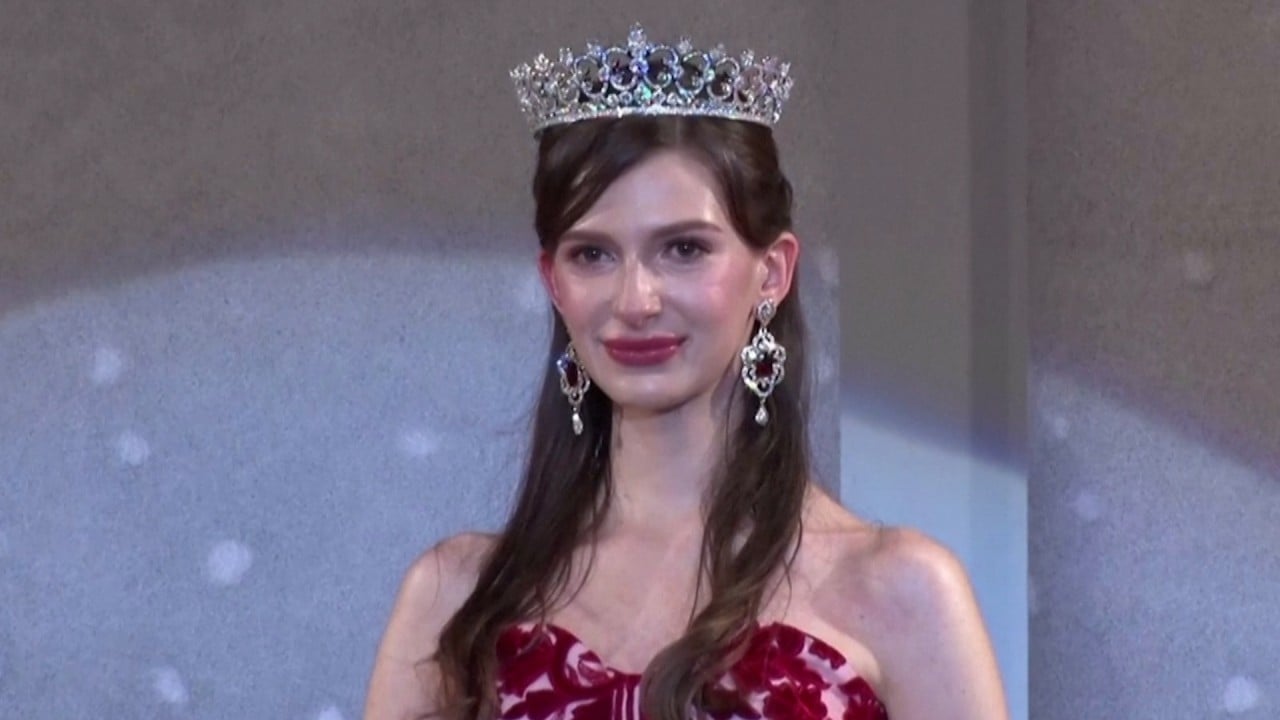Miss Japan’s Ukraine-born winner Karolina Shiino gives up crown after apologising over affair
[ad_1]
A Ukraine-born model with Japanese citizenship who won the 2024 Miss Japan beauty pageant has given up her title, competition organisers said Monday, in the wake of a magazine report detailing her relationship with a married man.
Karolina Shiino, 26, was named the 2024 Miss Japan Grand Prix winner on January 22. She was the first person of European descent to win the top prize in the contest organisers say is dedicated to crowning a representation of the “foremost beauty of all Japanese women”.
Born to Ukrainian parents, Shiino grew up in Nagoya, central Japan, after coming to the country at age five.
Her Miss Japan victory had already been considered controversial due to her foreign roots, but she gave up the title following the Shukan Bunshun weekly magazine revelation on Thursday, which reported her relationship with a married influencer who is also a doctor.

In a statement on its website on Monday, the Miss Japan Association said it had accepted her request to relinquish her title and “seriously reflects on our responsibility in bringing about the series of disturbances”.
The association also offered its “deep apologies” to concerned parties, including sponsors and judges, and said the competition’s top honour will remain vacant for the rest of the year.
Contest organisers had initially backed Shiino following the report, after she told her model agency Free Wave Co. that she had ended the relationship upon learning the man was married. But a new statement from the agency on Monday said it had confirmed she continued to see him after learning his marital status.
In an apology posted to her Instagram account, Shiino said she had been unable to tell the truth amid her confusion and fear after the article came out. “I am truly sorry for the huge trouble I have caused and for betraying those who supported me,” she wrote.
A naturalised Japanese citizen, Shiino has said her identity is that of a Japanese person. In a tearful acceptance speech upon winning, she said: “I had not been accepted as Japanese many times, but I am filled with gratitude to have been recognised as Japanese today.”
But her appointment ignited debate over what constitutes Japanese identity and led to polarised views on social media over whether her background made her an appropriate winner.
Eligible applicants must hold Japanese citizenship, be unmarried, and be between 17 and 26 years old as of the end of their application year. In selecting its winners, the contest says it judges candidates based on their inner strength, looks and actions.
‘They think I’m a criminal’: foreigners file racial profiling suit in Japan
‘They think I’m a criminal’: foreigners file racial profiling suit in Japan
Shiino said in an earlier interview with Kyodo that she welcomed discussion over her selection and respected people who opposed her win on the basis that she did not match the image of Miss Japan.
“I don’t feel negative toward that way of thinking. Rather, I believe such views provide an opportunity for reflection,” she said.
Miss Japan was first held in 1950, though its current incarnation dates back to 1967. It is a domestic event that does not send its winner to represent Japan in international competitions.
[ad_2]
Source link


